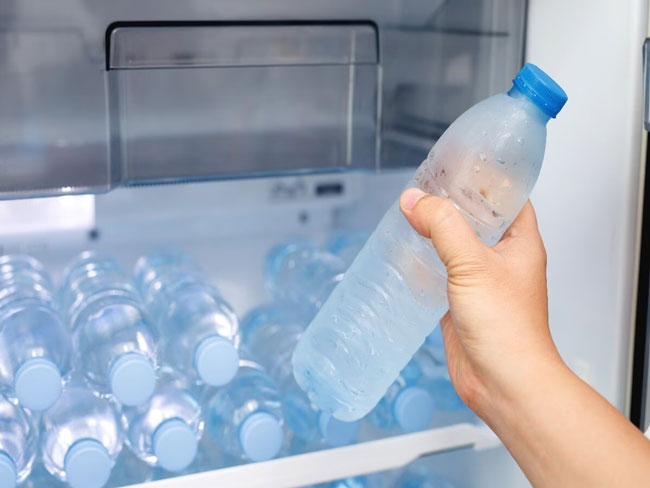It’s no secret that drinking enough water is crucial for maintaining good health. Apart from keeping the body hydrated, water plays a vital role in regulating body temperature, maintaining gut health, and ensuring healthy skin. As summer approaches, our water intake naturally increases. Nothing feels more refreshing than a glass of cold water after being out in the scorching sun.
Most households rely on refrigerators to keep water cool. However, you may have heard people say that drinking chilled water from the fridge is bad for your health. But is this just a myth, or is there any truth behind it? Let’s find out.
Is Drinking Cold Water from the Fridge Harmful?
Many people avoid drinking refrigerated water even in peak summer, believing it could be harmful to their health. Instead, they prefer traditional earthen pots (matkas) to store and cool water naturally. However, experts suggest that there isn’t enough scientific evidence to prove that fridge-chilled water directly causes health issues. For most people, drinking cold water is perfectly safe as long as it is clean and suitable for consumption.
That being said, every individual’s body is different. Some people may experience discomfort after drinking very cold water due to their unique health conditions. If you notice any negative effects after consuming chilled water, it’s best to switch to lukewarm or room-temperature water. Let’s explore some potential negative effects of drinking refrigerated water.
Possible Side Effects of Drinking Cold Water
1. Digestive Issues
According to experts, drinking very cold water can slow down digestion. Cold water constricts blood vessels and can interfere with the natural process of breaking down food. This may lead to bloating, gas, stomach pain, and indigestion in some individuals.
2. Tooth Sensitivity and Pain
If you have sensitive teeth or existing dental problems, drinking chilled water can trigger discomfort, pain, or a tingling sensation in your teeth. People with weak enamel or gum issues should avoid drinking excessively cold water to prevent aggravating these conditions.
3. Sore Throat and Cough
Some people experience throat irritation or soreness after drinking cold water. If you already have a throat infection, cold water can worsen the symptoms, leading to discomfort and prolonged recovery. In such cases, opting for warm or room-temperature water is a safer choice.
4. Caution for Heart Patients
Heart patients should be cautious when drinking very cold water, especially in large amounts. Sudden intake of extremely cold water can cause blood vessels to constrict, leading to temporary discomfort or spasms in the arteries. To avoid any complications, it’s advisable for heart patients to drink cool but not ice-cold water.
While drinking refrigerated water is generally safe for most people, it’s essential to be mindful of your body’s reaction. If you experience any discomfort, consider switching to water at a more moderate temperature. Staying hydrated is crucial, so drink water in a way that best suits your health and lifestyle.




